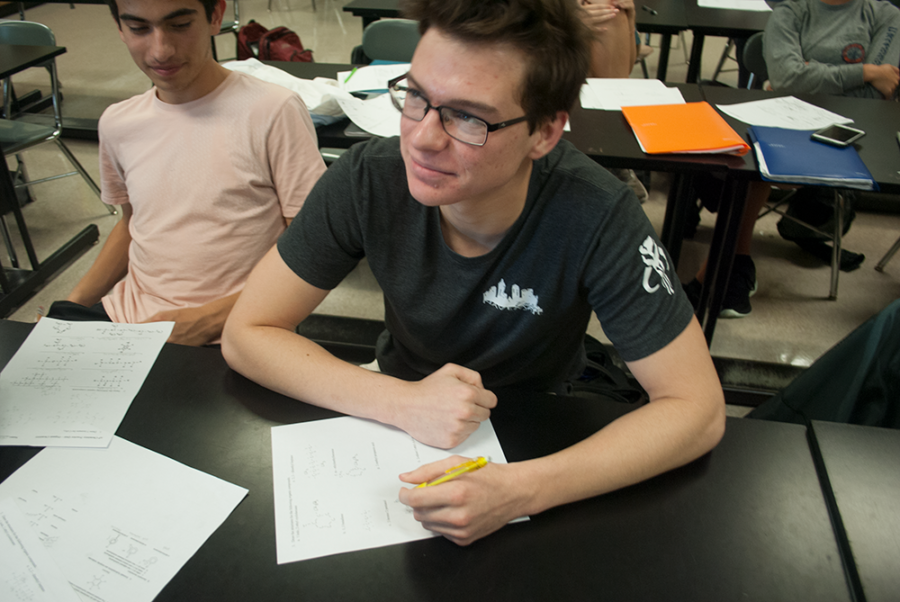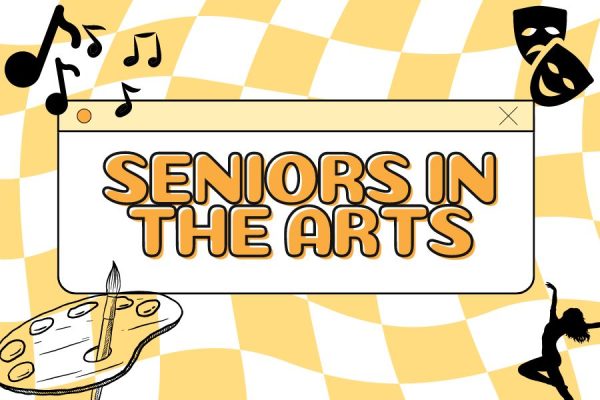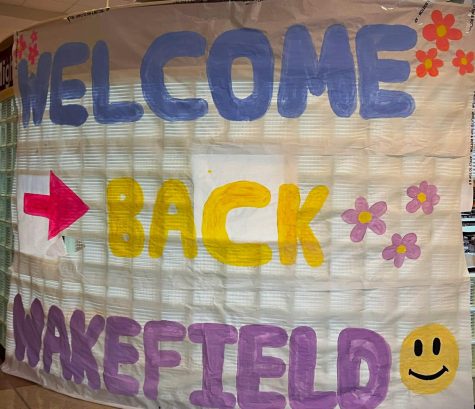Wake County parts with valedictorians, welcomes Latin system
Class of 2018 will see its final valedictorian at Wakefield High School
Wakefield’s last valedictorian, Garrett Dixon, stays diligent through his final days of high school.
A Wake County decision will conclude the valedictorian system within several North Carolina public schools, leaving the 2018 senior class to carry out this tradition for the last time. Parents and students alike, remain conflicted by the controversial decision and begin to question whether a label is as pivotal and appreciated as some may think.
Wakefield’s co-valedictorians, Katie Bynum and Garrett Dixon, will be honored at this year’s graduation, commencing the end of a long-standing academic title for the new Latin honors system (starting 2018-2019 school year), which several colleges and universities utilize as a tribute for educational success. According to The News & Observer, “Under the new system, seniors with a weighted GPA of 4.25 or higher will receive the distinction summa cum laude. Those with a weighted GPA of 4.0 to 4.249 will get the distinction magna cum laude, and those with a weighted GPA of 3.75 to 3.99 will receive the designation cum laude.”
Integration of this system, to those in Wake County public schools, believe that this “would be a better way to recognize students who may have barely missed being named valedictorian or salutatorian by several decimal places.” These same officials credit the system for allowing students to select classes that they enjoy, rather than those that boost their GPA. For guidance counselor, Jasmine Alston, eliminating the valedictorian/salutatorian system proves beneficial and delivers a positive change.
I’m glad that Wake County is getting rid of [the val/sal system] because I think it is going to take away the competitiveness between students,” Alston said. “There won’t be so much stress about rank and students will focus more on improving their GPA.”
The repercussions of continuing this academic system, for Alston, guarantees an immense amount of pressure that students find difficult to handle, a dilemma of which she has witnessed first hand.
“We have seen students that, if they are number three in the class, they completely crumble because they didn’t get val or sal,” Alston said. “This year we have two valedictorians, so there is no salutatorian. Students become upset about that because they want to be recognized at graduation, they want to speak, so I think [the Latin honors system] puts everybody on a level playing field.
Current Valedictorian, Garrett Dixon, recently went to a Wake County school board meeting, where 25 valedictorians were recognized. Dixon discussed the topic of removing valedictorian there and found that the conversation took a common theme — society hates to lose. Though he appreciates the title, he believes that recognition for all is a necessity.
“It is interesting to see the other people’s responses and some people were saying how our culture doesn’t want to say that people lose, so they want to get rid of first and second place,” Dixon said. “I actually like the val and sal system because I feel like there is a lot of smart people in this school.
.”2017 graduating class Salutatorian, Alec Ashforth, Duke University student, clarifies that too much emphasis is placed on the valedictorian/salutatorian system and that it does not equate to students wanting to work harder.
“I think people overestimate the significance that the valedictorian/salutatorian system has on a student’s drive for success. I think that, at the end of the day, students usually care more about getting into good colleges and getting scholarships for college than becoming valedictorian or salutatorian,” Ashforth said. “The valedictorian/salutatorian system definitely has some significance and does incentivize top students to take that extra AP class, but I don’t think it’s the main incentive to be high achieving academically.”
Not completely disregarding the benefits of such a system, Ashforth understands that this does compel students to be ambitious regarding their education, but in his own personal account, he declares the system has its flaws as well.
“Overall, I am not against the valedictorian/salutatorian system. I think this system sets a difficult goal for students to try to achieve and effectively motivates students to take more challenging classes,” Ashforth said. “I understand that the valedictorian/salutatorian system also has some negative effects. Particularly, I found that I would take AP classes for the sake of taking a class that could boost my GPA rather than because I was actually interested in the course material.”
Teacher to several past valedictorians and salutatorians in Wakefield history, Kerry Regan, considers the title valedictorian to warrant healthy competition and its removal will be a detriment to that strive for betterment.
“I don’t think it is a good idea. I think that students work harder knowing that they have that goal in mind of being valedictorian or salutatorian,” Regan said. “I think competition is good. I think as a society we’ve gotten to the ‘give everybody a trophy’ mentality and I just don’t think that’s good for society. I think students should compete and should strive to be the best that they can be.”
As we enter graduation time and begin to depart from the stature of valedictorian and salutatorian, according to Ashforth, your next chapter will be a transformative one. Already finished with his freshman year, he offers advice to the current senior class, advocating for good study habits and self-expression.
“Be the person you would like to become. In college, no one cares who you were in high school. You have the opportunity to make new friends and change how others perceive you,” Ashforth said. “Study hard and always go to class, but don’t forget to socialize. Homework and studying in college is much more self-driven than in high school. Being able to manage your time will make your classes feel easier while giving you time to socialize.
.”Similar to Ashforth, Dixon will attend Duke University in the fall and plans to major in mechanical engineering. From his understanding, he knows that Duke will be academically rigorous, but he is up for the task. He remains positive about his freshmen experience and hopes that it will be fun. Bynum will be attending the University of North Carolina at Chapel Hill in the fall.
To the next graduating class, Dixon wants them to remain confident and continue to aim high, even in the absence of valedictorian and salutatorian.
“Definitely don’t get discouraged, if you are seriously vying for valedictorian or salutatorian, since we don’t have it anymore,” Dixon said. “Strive for more than what you think you can do. Maybe you don’t need to take 8 AP’s, but don’t overload yourself, but definitely push yourself,”
















